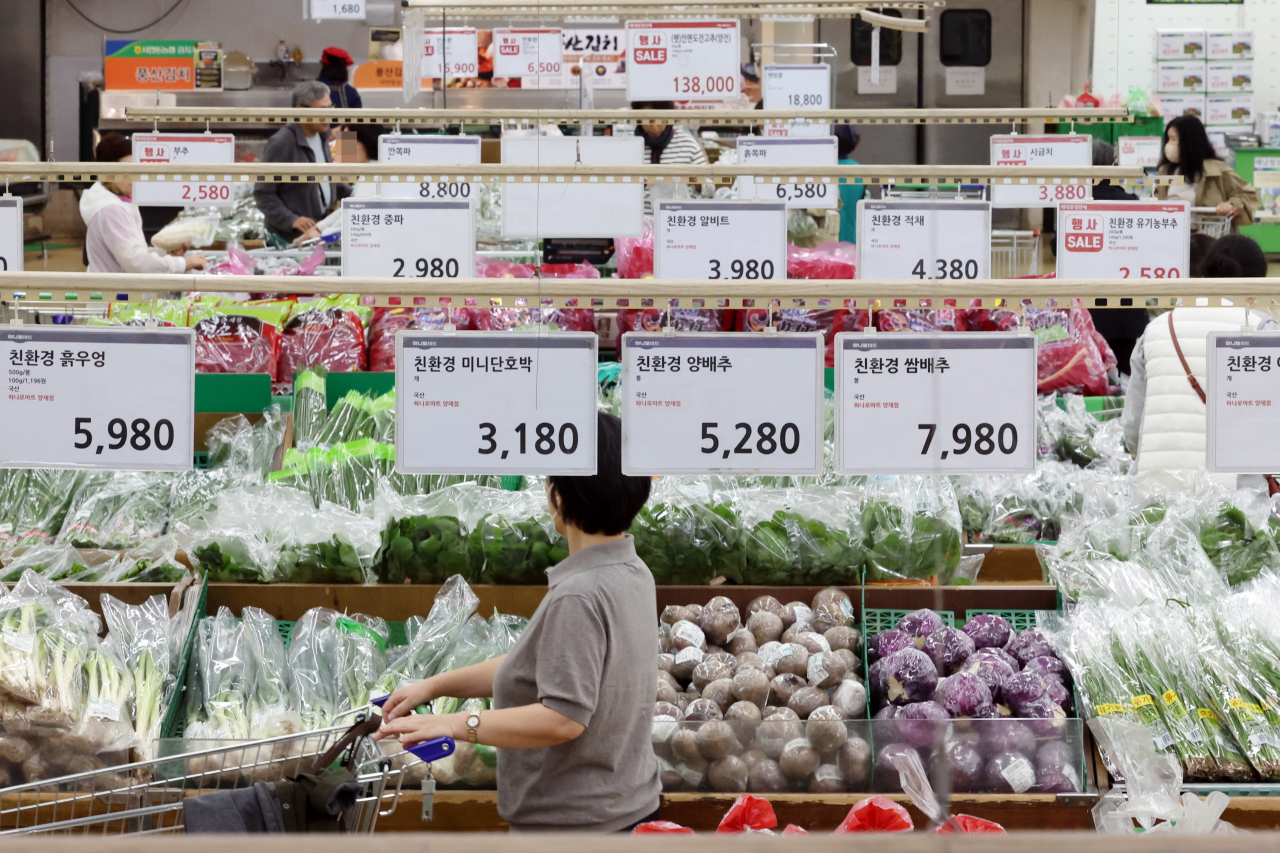S. Korea's inflation grows faster, stays over 3 pct for third month in Oct.
By YonhapPublished : Nov. 2, 2023 - 09:44

South Korea's inflation grew at a faster pace in October, staying above 3 percent for the third consecutive month, due to higher prices of energy and farm goods, data showed Thursday.
Consumer prices, a key gauge of inflation, rose 3.8 percent last month from a year earlier, compared with a 3.7 percent on-year increase the previous month, according to the report from Statistics Korea.
It is the third month in a row that the annual price growth has picked up pace, though inflation has generally been moderating recently.
The on-year price growth fell below 4 percent in April for the first time in more than a year and had been steadily decreasing to fall to a 25-month low of 2.3 percent in July.
But the rate rose to 3.4 percent in August and further to 3.7 percent the following month due to high oil and farm products prices.
Core inflation, which excludes volatile food and energy prices, rose 3.6 percent on-year in October, slowing from the previous month's 3.8 percent growth.
Prices of daily necessities -- 144 items closely related to people's everyday lives, such as food, clothing and housing -- climbed 4.6 percent on-year in October, accelerating from a 4.4 percent rise the previous month.
In detail, prices of agricultural, livestock and fishery products jumped 7.3 percent last month, with those of vegetables surging 13.5 percent, the most in 29 months.
Unfavorable weather conditions have affected their output and delayed easing prices, an agency official said.
Utility services reported a 9.6 percent on-year price increase in October on rising global energy prices. South Korea depends heavily on imports for its energy needs.
Prices of industrial products added 3.5 percent last month, compared with 3.4 percent in September, due mainly to higher gasoline and clothing costs.
Costs of gasoline rose 6.9 percent, while those of diesel fell 7.9 percent, the data showed.
The service sector also reported a 3 percent on-year advance in prices last month on higher insurance and house management costs.
"Inflation is expected to ease at a slower pace than expected due to geopolitical risks from the Middle East, abnormal weather conditions and other factors," Finance Minister Choo Kyung-ho said.
"The government will put priority on the stabilization of prices and activate a special scheme involving all relevant ministries," he added.
The finance ministry said that inflationary pressure is expected to cool down on the rising agricultural output in autumn, though the growth rate will stay over 3 percent through the end of this year.
South Korea is unlikely to achieve this year's inflation target of 3.3 percent, as the figure during the first 10 months of 2023 came to 3.7 percent.
The Bank of Korea set its target inflation rate at 2 percent.
Last month, the central bank held its key interest rate steady at 3.5 percent, the highest level since November 2008, amid high household debts, an economic slowdown and heightened external uncertainties.
The rate freezes came after the BOK delivered seven consecutive rate hikes from April 2022 through January 2023. (Yonhap)





![[KH Explains] No more 'Michael' at Kakao Games](http://res.heraldm.com/phpwas/restmb_idxmake.php?idx=644&simg=/content/image/2024/04/28/20240428050183_0.jpg&u=20240428180321)




![[Grace Kao] Hybe vs. Ador: Inspiration, imitation and plagiarism](http://res.heraldm.com/phpwas/restmb_idxmake.php?idx=644&simg=/content/image/2024/04/28/20240428050220_0.jpg&u=)









